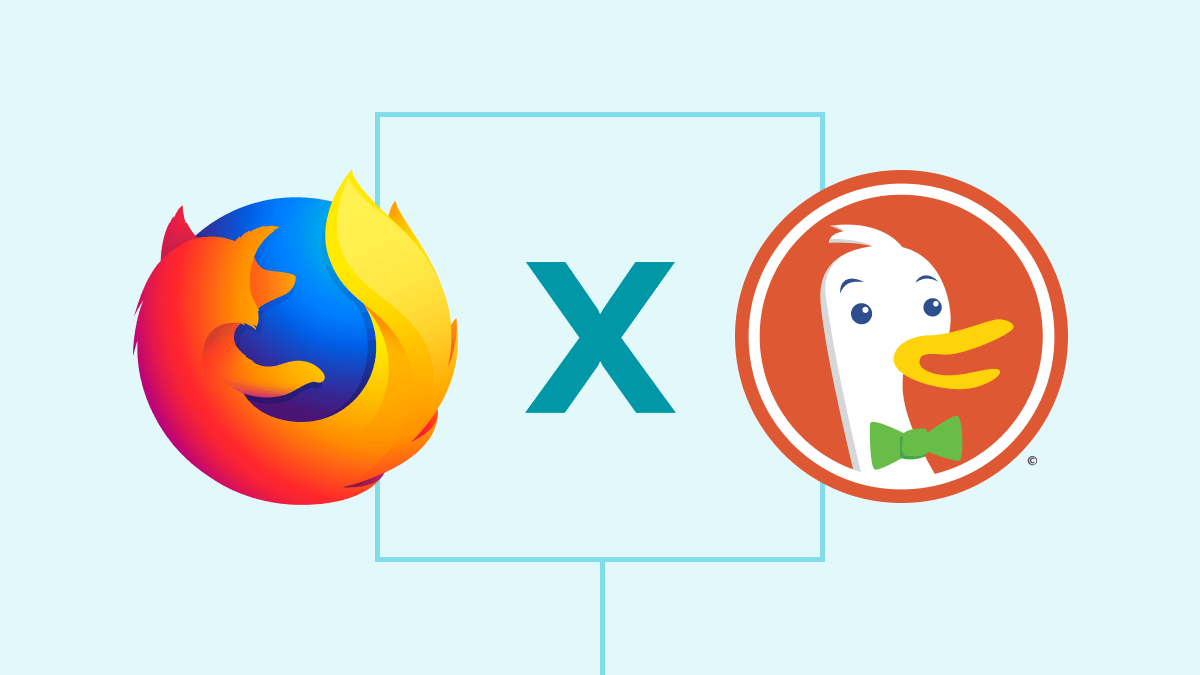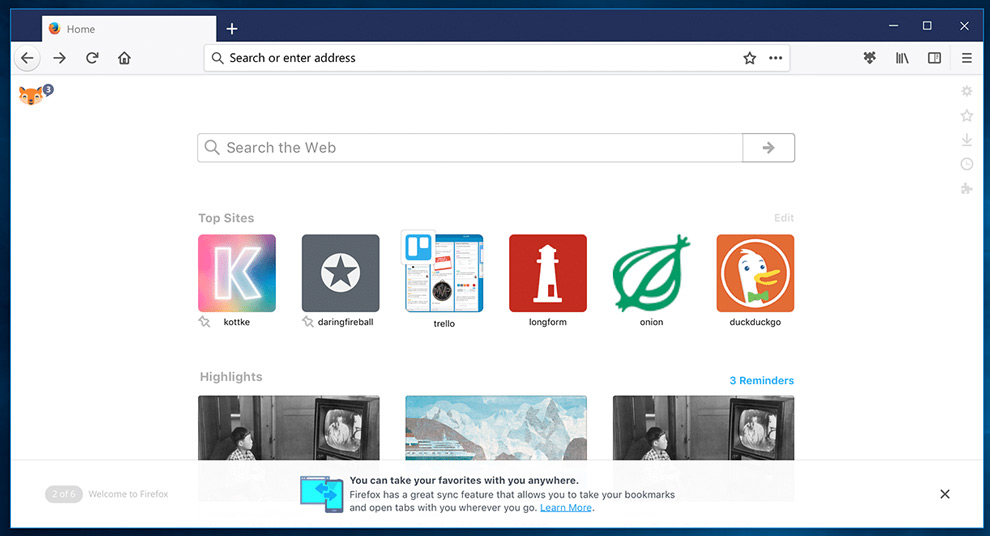Reinventing the search engine in the age of privacy concerns
Duckduckgo Firefox Download
DuckDuckGo (DDG) sets itself apart by taking a quality over quantity approach. Where a search engine like Google uses your personal data to curate search results, it does so to help drive targeted advertisement revenue. DDG does no such thing. It doesn’t collect or track your data and aims to provide the same search results no matter the searcher. By taking the personalization out of the equation it delivers search results purely on the merits of the engine. DDG claims to use more than 400 sources for its results which include vertical sources like Yelp for restaurant searches, its proprietary DuckDuckBot crawler, and crowd-sourced sites like Wikipedia. The UI is pretty similar to the Google of old so will feel familiar to everyone. You can search web, images, video, and news. They also make a Chrome extension if you want the privacy features of DDG but the search of Google. All in all, it’s an excellent search engine whose fundamental privacy niche offers a great value proposition.
A short animation about DuckDuckGo!Voice Actors:DuckDuckGo(Hai)(No Social Media)Editorhttps://twitter.com/AJsparkxMu. DuckDuckGo is an Internet privacy company that empowers you to seamlessly take control of your personal information online, without any tradeoffs. With our roots as the search engine that doesn’t track you, we’ve expanded what we do to protect you no matter where the Internet takes you. The Internet privacy company that empowers you to seamlessly take control of your personal information online, without any tradeoffs. I had a look at the data being sent from my browser (Firefox 14.0.1 on Ubuntu 11.04) back to the DuckDuckGo servers when I do page searches (without changing any of DuckDuckGo's default settings) and found the following good points: no DuckDuckGo cookies are stored on my browser. All searches are performed with a http GET. Search the internet using this safety- and privacy-first extension, and avoid trackers or other online threats without actually having to do something.
Duckduckgo Firefox Addon
A real contender for the most effective search engine
DDG delivers a back-to-basics search function powered by unbiased content
DuckDuckGo has steadily carved out a place among the top search engines since its debut in 2008. The fervor and sense of the DDG mission clearly resonate with users across the internet. DDG’s mission is simple: Too many people believe that you simply can't expect privacy on the Internet. We disagree and have made it our mission to set a new standard of trust online.With a new headline almost every day about data breaches and the ethical concerns of internet behavior tracking, people have been turning to DDG. What started with an idea of a better search engine that doesn’t track search history has seen exponential growth to an anticipated 14 billion searches for 2019. But how effective is it? How does the search engine work differently than the norm (Google)?
It's all about sources. DDG doesn’t want to simply provide links to users, it wants to provide answers. Finding an answer to a specific question is the most common use case for search engines. One of the ways DDG accomplishes this is by the Instant Answer function. The premise behind the Instant Answer is that specialized sites such as Yelp, MetroLyrics, and StackOverflow do a better job at answering searches for their respective genre (restaurants, song lyrics, programming questions). Instant Answers appear at the top right of the screen after a search. They are informed by a number of different sources. Wikipedia answers many of them. DDG also has an open source community called DuckDuckHack that allows contributors to add answers to common questions. Additionally, DDG has an intelligence engine that selects the optimal sources for a particular search and displays answers in real time (recipes, products, images, etc). Traditional links in the search results use the Yahoo-Bing engines, among other sources. It earns money by working with ads from the Yahoo-Bing network and by a relationship with eBay and Amazon.
The !bang syntax is another differentiator and one of DDG’s coolest features. It’s similar to those Google results that display multiple links from the same site – Quora, Reddit, etc. !bang allows you to execute a search on a specific website. For example, if you wanted to see a list of all the first generation Transformers toys for sale on eBay, you could simply type in “!e transformers g1” in the search bar. This really helps minimize the need to leave DDG. You can directly search more than 12,000 sites from the DDG page.
Two additional services aim to fulfill the DDG privacy mission beyond the core search engine.
- -A Chrome extension exists for those who can’t extricate themselves from the Google ecosystem and want to use Chrome. Once installed, the extension blocks advertising trackers and keeps your search history private. It also increases your encryption protection by forcing sites to use an encrypted connection where available, protecting your data from ISPs.
-They have a privacy knowledge base. DDG wants users to understand the privacy dilemmas in the modern internet and offers a variety of articles on protecting your privacy, crash courses and how-to guides, and academic research on privacy.
Where can you run this?
The DDG search engine runs on any browser. Privacy enhancing extensions for Firefox, Chrome, and Safari can also be installed. Note that these work on Opera and Vivaldi too. They also make a mobile app browser for iOS and Android users that scores pretty highly for its intuitive UI across the Apple and Google Play stores.
Duckduckgo Firefox Android
Is there a better alternative?
While DDG is the most popular private search engine there are a handful of options that offer similar angles. Search Encrypt focuses on encrypting every part of a user’s search. It can be used from its website or as a browser extension and does not have its own search engine per se – it uses other engines to drive its results. StartPage leverages the Google search with some privacy enhancements like a URL generator to eliminate the need for cookies. Swisscows not only offers privacy but a totally unorthodox search methodology in its use of machine learning to derive results. When you execute a search you’re presented with the usual listing of links but on the righthand side of the UI shows a tiling of related subjects that you can continue to search.
Our take
It is a compelling alternative to the big search engines. Privacy is one of those ethical dilemmas where the outcome of all this personal data tracking might be hard to predict, but if it comes to a head, you know the consequences will not be positive. DDG also works well as a search engine, ethics aside. The sources it uses, the Instant Answer platform, the !bang function, that it relies on unbiased information in its calculations: these are good things. The extensions also add value if you don’t want to use DDG directly, and the fact they have a privacy knowledge base means the DDG leadership practices what they preach.
Should you download it
Give it a shot. Unless you love targeted ads and the specter of Google knowing everything about you, the risk/reward ratio here favors a use of the engine, and an extension or app download.
Highs
- Privacy protections
- Unbiased search results
- Privacy library

Lows

Duckduckgo Firefox Plugin
- Alternatives can offer better security through encryption

DuckDuckGofor Windows

1.0
Greetings,I have been exclusively using Firefox forever and happy with it until a friend said 'Hey, try this' and tacked duckduckgo on top of it - and I'm sure it does a great job - but I have since then noticed some browsing oddities relative to Firefox pre-duckduckgo and I want to remove it that I may compare before and after performances.
But I can't find it anywhere and as I am allergic to, and highly suspicious of, anything I can't track down and remove from my system if I so desire, I REALLY want it gone, at least until I find out more about its characteristics.
So question #1 = is it really that useful, and #2 = how do I remove it regardless? Thanks for the feedback.
